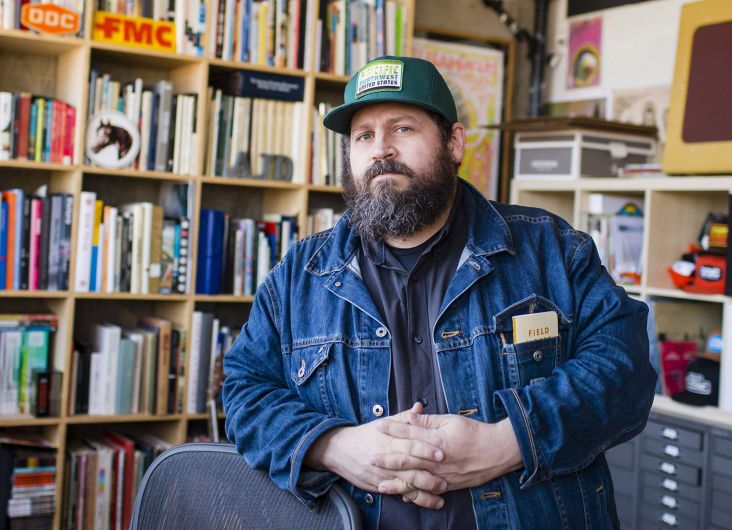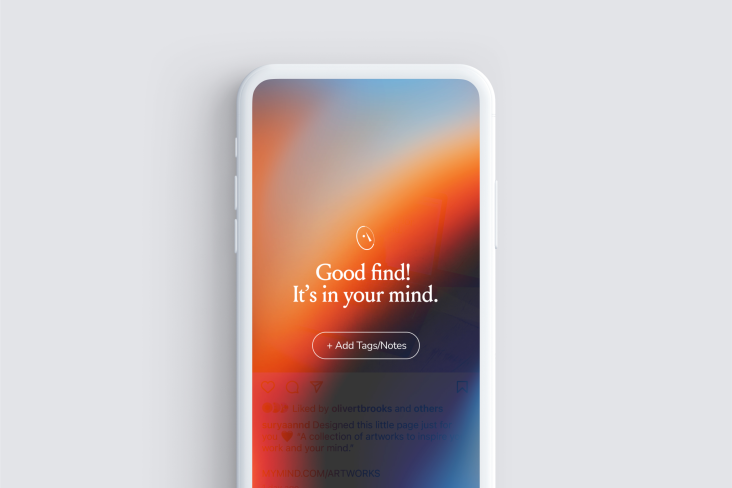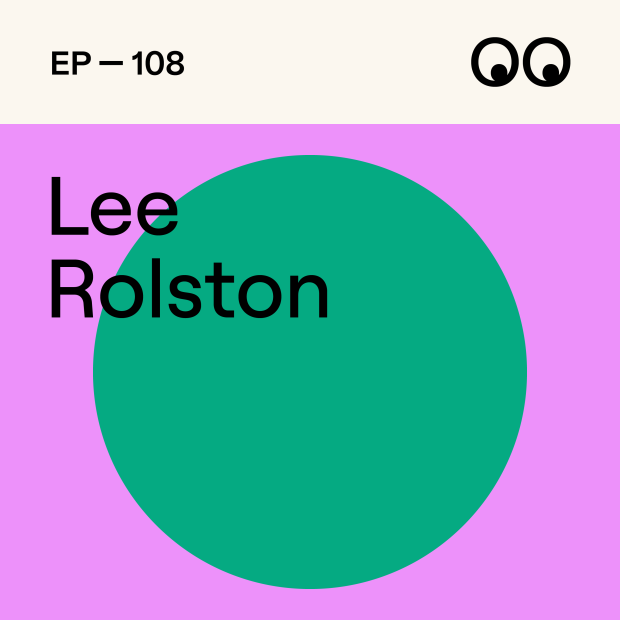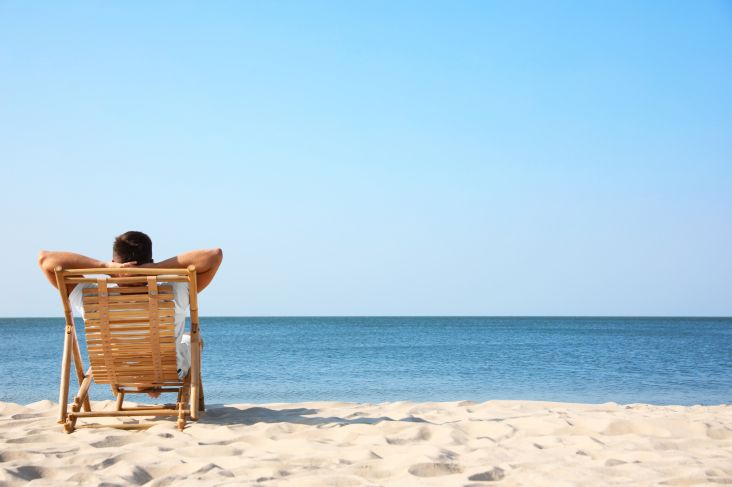Ditch the freelance guilt: How to make the most of a more flexible work life
The first couple of years of freelancing weren't exactly a walk in the park. But now you're established and have a few steady clients under your belt; you don't have to work seven days a week or 12 hour days any more (well, let's hope not); you can take your foot off the accelerator.

Image licensed via Adobe Stock
So why aren't you doing that? What's stopping you from enjoying a better work/life balance? Guilt. That's what. Because while everyone else is working the usual 9-5 routine, you feel bad that you have more freedom. Weirdly, you consciously decide to work harder and for longer hours than those who have full-time jobs.
If you've been wondering if freelancing isn't all it's cracked up to be, it's time to embrace one of its key perks – and that's being in control of how you spend your days. With the following tips, we'll stop you feeling guilty and show you how to free up your time to make the most of a flexible freelancing life.
First up, stamp out that guilt
What have you got to feel guilty about? You work hard, your clients are happy, you pay your taxes – hell, you might even employ others and pay their taxes too. You're doing a great job, so why feel guilty if you take an afternoon off now and again?
Besides, you do way more than those who work for someone else. You look after the admin, accounts, invoicing. You answer the phone, tackle emails and new business enquiries. You go to meetings, come up with all the ideas, draft together proposals. And that's all without getting paid.
The actual work – the stuff you get paid for – is only a small part of what you do. Which means you have every right to enjoy a few perks of the job. You've got it tougher than most people, and you're taking more risks, so relax – it's ok to have more flexibility.
Establish your own routine
Still feel guilty? By all means, stick to the usual 9-5 routine, if that's what you prefer. Just be completely strict with yourself during evenings and weekends, and don't even think about work.
If those regular hours aren't for you, work whenever you like! Just as long as you get the job done, your clients won't care when you're at your desk. How would they know when you're there anyway? They'll understand you sometimes have meetings, or might be travelling somewhere. They'll know you have other clients. So why feel guilty for following a different schedule? One that ignores the standard hours?
What's stopping you from starting work at 7am and finishing at 2pm? That's a good six or seven hours, give or take a break. You can put your "out of office" on, and explain to clients you're available if there's an emergency. Whack your voicemail on, and then determine if something needs dealing with during downtime. Hey, being "on-call" is a small price to pay for having so much freedom.
Understand the science behind productivity and work fewer hours
Think you'll get more done if you spend more time doing it? Wrong. Research suggests that extra time at your desk can be counterproductive and even hazardous to your health. The general rule of thumb is to work no more than 50 hours per week, certainly if you value your happiness and life outside of the office.
Perhaps you could work less than that. Hey, don't laugh! It's entirely possible. It's how you choose to spend your time, after all. For instance, do you spend those eight hours at your desk working, and only working? Of course not. You might spend four or five hours being productive – the rest might be spent procrastinating, checking emails, catching up on Twitter and watching funny cat videos on YouTube. (Hey, no one is judging – this is what I do!)
If you need further convincing, Charles Darwin and Charles Dickens only worked four hours a day – they, like the growing anti-workaholism movement, believed that the key to high productivity could be working fewer hours.
What could you change to work less and become more productive?
For further inspiration, check out Rest: Why You Get More Done When You Work Less by Silicon Valley consultant Alex Soojung-Kim Pang. He makes a case for a four-hour workday and states: "Decades of research demonstrate that the correlation between the number of hours worked and productivity is very weak."
That research includes a study from the Illinois Institute of Technology in the 1950s, which found that: "scientists who spent twenty-five hours in the workplace were no more productive than those who spent five. Scientists working thirty-five hours a week were half as productive as their twenty-hours-a-week colleagues. After that, it was all downhill: the sixty-plus-hour-a-week researchers were the least productive of all."
Incredible, when you think about how much time we could all save.
Get some serious self-worth and confidence under your belt
You're choosing your hours, and you're striving to work less. Fantastic. But things don't always go to plan – not when specific clients are concerned. You know the ones I'm on about. They're the stuff of nightmares. For some reason or another, they never contact you when you're at your desk, but suddenly – when you decide to take a rare holiday – they decide they can't possibly live without you, and call you while you're sat on your sun lounger. Then bingo! You're in work mode again. And those two or three precious days of relaxation are gone forever.
Enough! If you've got a client that doesn't respect your time off and is sapping the life out of you – ditch! Or at least take steps to move away from said client without causing any damage to your business or cash flow.
Up your rates and earn more in less time
Seems obvious (and daunting) doesn't it, but raising rates is easier than you think. You start testing the water with new clients, during those initial negotiations, and you introduce "rate reviews" with existing ones. Just make sure you contact one client at a time, so you spread the risk.
Don't think you're good enough to charge more? Give yourself some kudos and consider how much you're truly worth. People will pay good money for your skills and experience – and you can certainly charge more as time passes. Not sure what to charge? Ask around to find out what other freelancers are doing – it can't do any harm to do some research. In the meantime, read our tips on moving away from poor quality clients to work less and earn more money.
Enjoy a change of scenery
Now that you've got more time, why sit at your desk when there's a whole world out there to explore? Coffee shops, co-working spaces, restaurants – many warmly welcome those armed with laptops. It's a growing culture where people enjoy tackling a few emails from the comfort of a squishy armchair while sipping a nice latte.
If you fancy a serious change, why not hop on a plane and enjoy life as a digital nomad in some warmer clime? Just make sure you've got the right remote working tools in place before you go. And consider these tips on work trips to ensure you're fully prepped for life on the road.
Take regular holidays...
Don't fancy the digital nomad life? Me neither. I like the idea of it. But in reality, I'd rather work hard and then go on "holiday" to completely switch off. To me, travel isn't something that should involve a laptop and a mobile phone – but that's just me. I'm perhaps old school.
Someone who agrees with me is a friend called Kiffanie Stahle, a photographer, fellow creative business owner, and lawyer living in Oakland, California. Understanding only too well the pressures of entrepreneurship, she has recently introduced a new rule – to work six weeks on, and then take one week off. And you know what, it's been an enormous success. It always gives her something to look forward to, and she gets the rest she deserves. Otherwise, she'd work and work and work, forgetting to dedicate some much-needed R&R.
This tactic has been so good for her that I've decided to do the same. At the time of writing this, I've just returned from Fuerteventura. And next month, I'm planning a week with some good pals in Crete. After that, I'm going to Italy. Rest assured, I shall not be taking anything work-related with me.
...But make those holidays count
When you do take a break, try and do something relaxing now and again. As in, if you insist on lots of sightseeing, balance things out with trips to the beach where you do nothing but sleep, eat, swim in the sea and sunbathe. Rest – is the point I'm trying to make. It will do wonders for the soul.
Don't believe me? In his book, Rest, Alex Soojung-Kim Pang tells us how researchers at Germany's University of Konstanz have been looking at which holidays provide the highest degree of recovery. They believe there are "four major factors that contribute to a vacation that offers recovery: relaxation, control, mastery experiences and mental detachment from work".
Relaxation is essential, but what about the other three? Well, control might mean having control of your own time – when to eat, when to swim. Mastery experiences are engaging and mentally absorbing – think chess, for example. And detachment from work – well, this is about switching off and avoiding work altogether, even work-related distractions. If you can conquer all four, then you're getting a well-deserved break.
But what about the question of how much time you should take off? According to Alex Soojung-Kim Pang, psychologists believe that while two or three week holidays can be great, "happiness levels rise rapidly during the first few days, peak around day eight, then plateau or slowly decline". That means one week is all you need.
"Not putting yourself first will only lead to burnout, stress and misery – and then you'll be no good to anyone. You have to appreciate how important your downtime is."
Back at work, don't forget to prioritise yourself every day
We can't be on holiday all the time – but we can undoubtedly inject some relaxation into our everyday lives, and not feel guilty about it. Yes, it's quite reasonable sometimes to think that work is more important than anything else. You'll no doubt worry that clients come first, and you should drop everything to ensure they never go elsewhere. These are normal feelings every freelancer struggles with, but they'll often force us to forget our health and happiness. I've certainly been guilty of this over the past ten years of running my own business.
But not putting yourself first will only lead to burnout, stress and misery – and then you'll be no good to anyone. You have to appreciate how important your downtime is, and why you have to set aside time for hobbies, fitness, family and friends.
One area that I always used to neglect was fitness. I was so tired after a long day in the office that I couldn't be bothered to pound the treadmill or lift a kettlebell. Now I tell myself that it's just as important as getting out of bed and going to work every day. And so I go to the gym three times a week, and I never miss a session – unless I have to. Every weekend, I go cycling (I'm getting pretty good at it – the Peak District is still tough, but I'm faster at climbing those hills). The difference this has made to my life is unbelievable. I'm happier, healthier, less stressed. I'm sleeping better, drinking less.
To make sure you prioritise yourself, why not schedule things into your calendar, so they become part of your routine? Whatever you choose to do outside of work, make it something positive and fun. Could it be a fortnightly catch up with friends? Could you set yourself a goal to run 10km, and sign up for a race? How about joining your local library and aiming to read at least one book each month? By making time for you, you'll be a far happier and more productive freelancer.
Remember, you only live once
Finally, may I leave you with this critical point – this isn't a dress rehearsal, so spend your time wisely. You must ditch the guilt about your flexible work life, and embrace everything good that freelancing has to offer – which includes having more time to do the things you love.
You don't have to be chained to your desk (overworking is counterproductive). You really can earn more in less time, choose more agreeable clients and enjoy a better work/life balance (you're in charge of your destiny). You shouldn't feel guilty about choosing your hours or ditching the office for a sunnier spot.
Freelancing is challenging, and you're taking lots of risks every day, so give yourself a break and embrace the highs of entrepreneurship. You'll be happier, healthier and more productive, achieving more than you ever thought possible.
















](https://www.creativeboom.com/upload/articles/df/df42551260f2969deac2d3ad9a8e4b1c3af0e575_732.jpeg)
](https://www.creativeboom.com/upload/articles/d9/d9deb671287af961640868270d210d16a02366fc_732.jpeg)


](https://www.creativeboom.com/upload/articles/6c/6c9d01b6f5115b69416c34f725edcc144ee83b67_732.jpeg)

